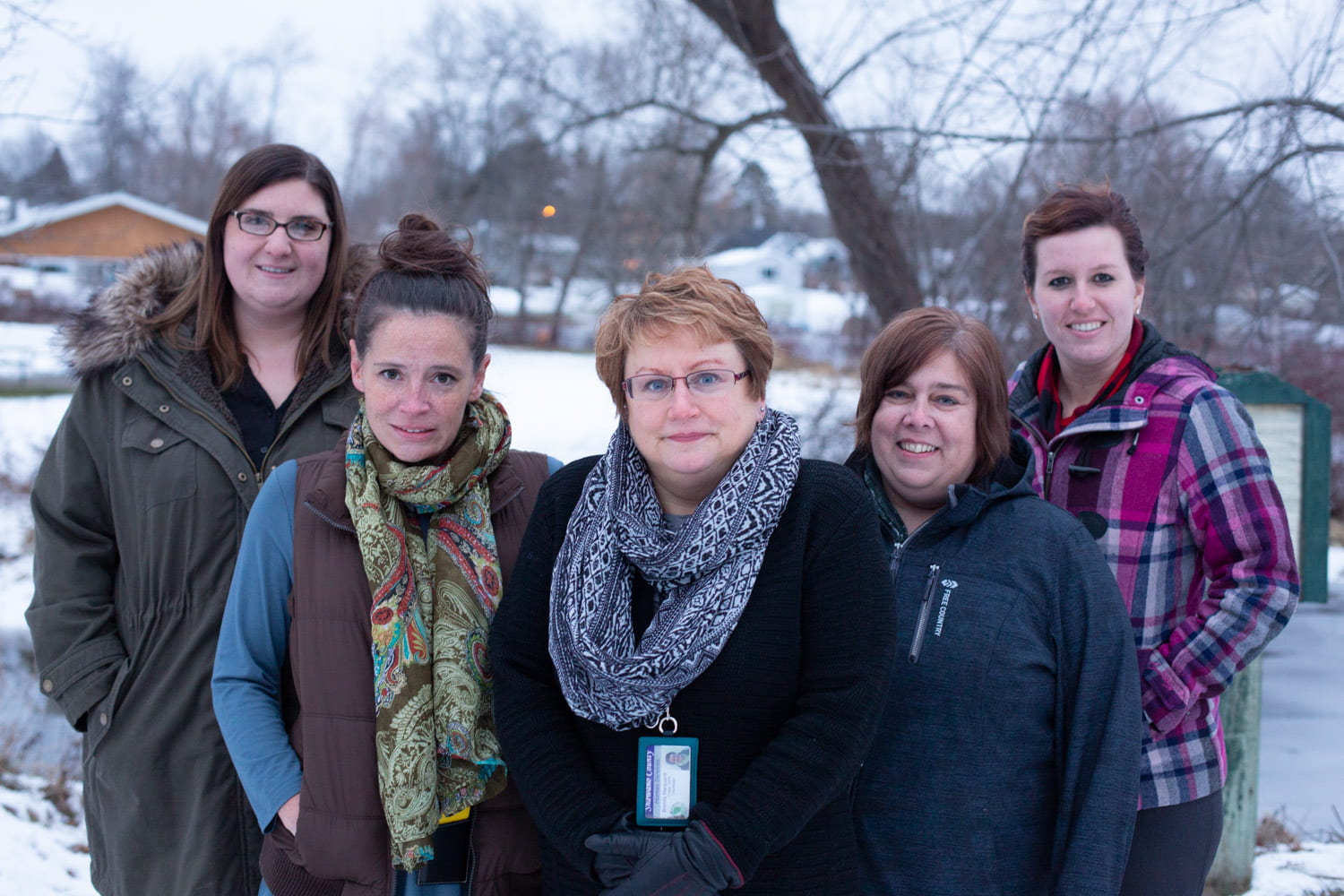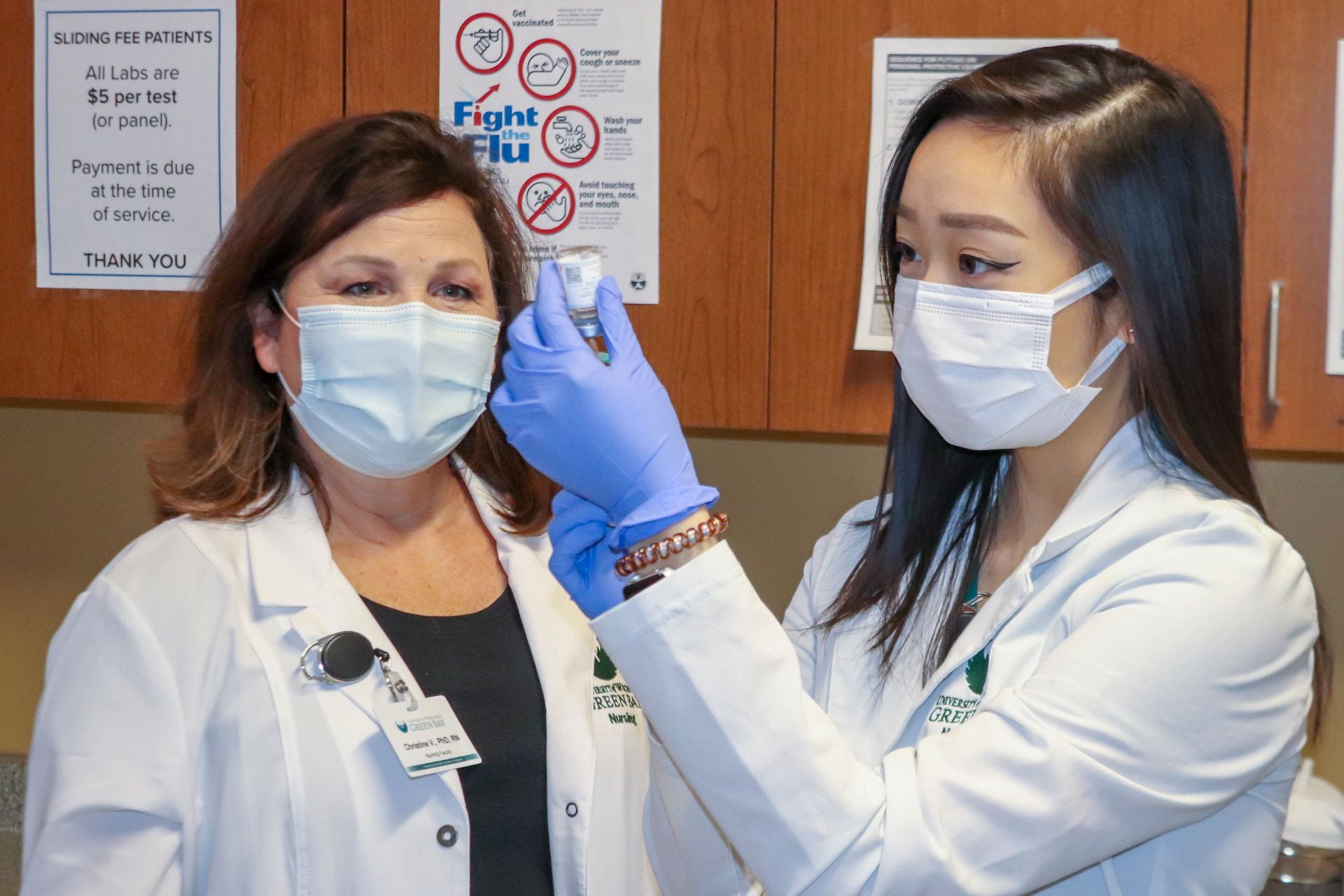Crisis: On the Frontlines

Training program expands statewide
Crisis. A frantic phone call, or race to the emergency room.
Crisis. A feeling of deep sadness, not knowing how you’ll handle it all.
Crisis. An attempt to take one’s life.
Crisis can come in many different situations, affecting each person uniquely. In every crisis, there is a call for help. An expanding UW-Green Bay training program is helping those on the front lines in Wisconsin, ensures the call is answered. Every time.
This call for help is best answered by individuals with a passion for helping others and life-saving training that prepares them to handle any and all situations that arise. These exceptional people are often the difference between life and death.
Training is critical
Since 2009, crisis counselors have access to training through UW-Green Bay’s Behavioral Health Training Partnership (BHTP). The BHTP provides training, consultation and support services for Wisconsin’s county human services professionals and other community organizations (e.g., schools, foster parents, law enforcement). A Wisconsin Department of Health Services grant created the training partnership more than nine years ago to improve the quality and capacity of crisis services in the region. The team now trains crisis care professionals in 53 of 72 counties in the state.
“Prior to BHTP’s creation, counties were struggling with how to provide 40 hours of crisis orientation training to professionals who were making (potentially) life or death decisions,” said Jessica Delzer, MS, LPC, BHTP Director at UW-Green Bay. Crisis training is needed for emergency mental health certification and in turn, reimbursement for services, per the State of Wisconsin.
Critical classroom training focuses on three core areas: 1. Crisis services overview 2. Suicide and risk assessment 3. Wisconsin mental health laws These in-person training sessions are held once per month, and additional specialized training is offered both in person and online. “We show people how to do this really tough work, but one of the awesome things about the partnership is the relationships that form during this training,” says Delzer. “Providing an opportunity for a 25-year veteran of social work to share experiences with a recent graduate is invaluable.”
Working to prevent crisis

Jenna Hammer ’15 CAPSW, SAS
Intervention Services Supervisor
Shawano County Department of Human Services
Jenna Hammer ’15 CAPSW, SAS, Intervention Services Supervisor for Shawano County Department of Human Services has seen crisis come in many ways, unique to every person in need. The training received through the BHTP has been vital in helping her and her team assess and help in all situations. “Teaching what crisis is, possible triggers and responses, and how an incident or situation can affect daily living,” states Hammer. “We use these skills every day — from motivational interviewing to the art of de-escalation, we’re the front line and true gatekeepers for people in crisis.” Not all cases end successfully; Hammer explains that clients have been lost over the years. Successful outcomes are celebrated.
Take Linda (name changed). Middle-aged, living alone and paranoid, Linda was calling law enforcement multiple times a day, insisting that she was in danger. While she did not pose a threat to herself and didn’t need “crisis” intervention per se, law enforcement and family members were frustrated with her taking up so much time and community resources. Linda couldn’t help herself. And those she was calling couldn’t help her either.
Eventually, she wound up in the emergency room and the county’s crisis workers were called in. They found that her struggle with mental health issues meant she wasn’t paying her bills, her home was quite dilapidated and she was in the process of being evicted. Her child had recently been removed from the home and she was clearly suffering from the “snowball effect” of everything happening at once.
Hammer and her staff offered resources — resources that law enforcement and others had previously offered — and this time, Linda agreed to get help. Behavioral health training helped crisis frontline workers to ask the right questions. They learned that Linda had previously suffered a traumatic brain injury, and because of their training, knew how to work with her to effectively support her. They listened to her as a person, and not just someone who was taking up too much time. Linda is now medically stable, attending regular meetings to work through her issues and is looking at getting her own home once again.
“We got a lot of ‘thanks’ from those who had been trying to work with Linda for so long,” says Hammer. The partnership that she and her staff have established with law enforcement and other community professionals continues to flourish, and Hammer is relieved that their training and support could help both Linda and others involved.
“We have to balance listening to the frustrations of our partners with the rights of our clients,” says Hammer. “When things aren’t going right, and we can then get a client to a point where she recognizes her needs and makes a change, it’s phenomenal.” UW-Green Bay’s Behavioral Health Training Partnership is truly answering our neighbors’ calls for help… in a professional and hopeful way. “Our crisis workers see people at their most vulnerable,” says Delzer. “It’s a lot of responsibility. We train staff to work with people in a sensitive and strength-based way, and prevent traumatizing them over and over again.” Providing hope to those in Wisconsin who need it most.
–Story by freelance writer Kristin Bouchard ’93





